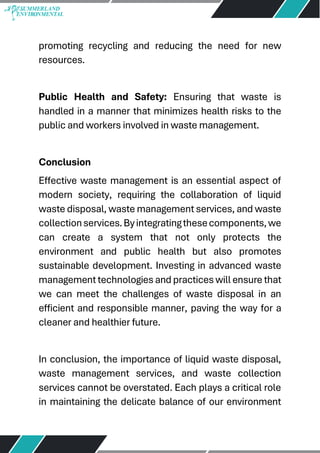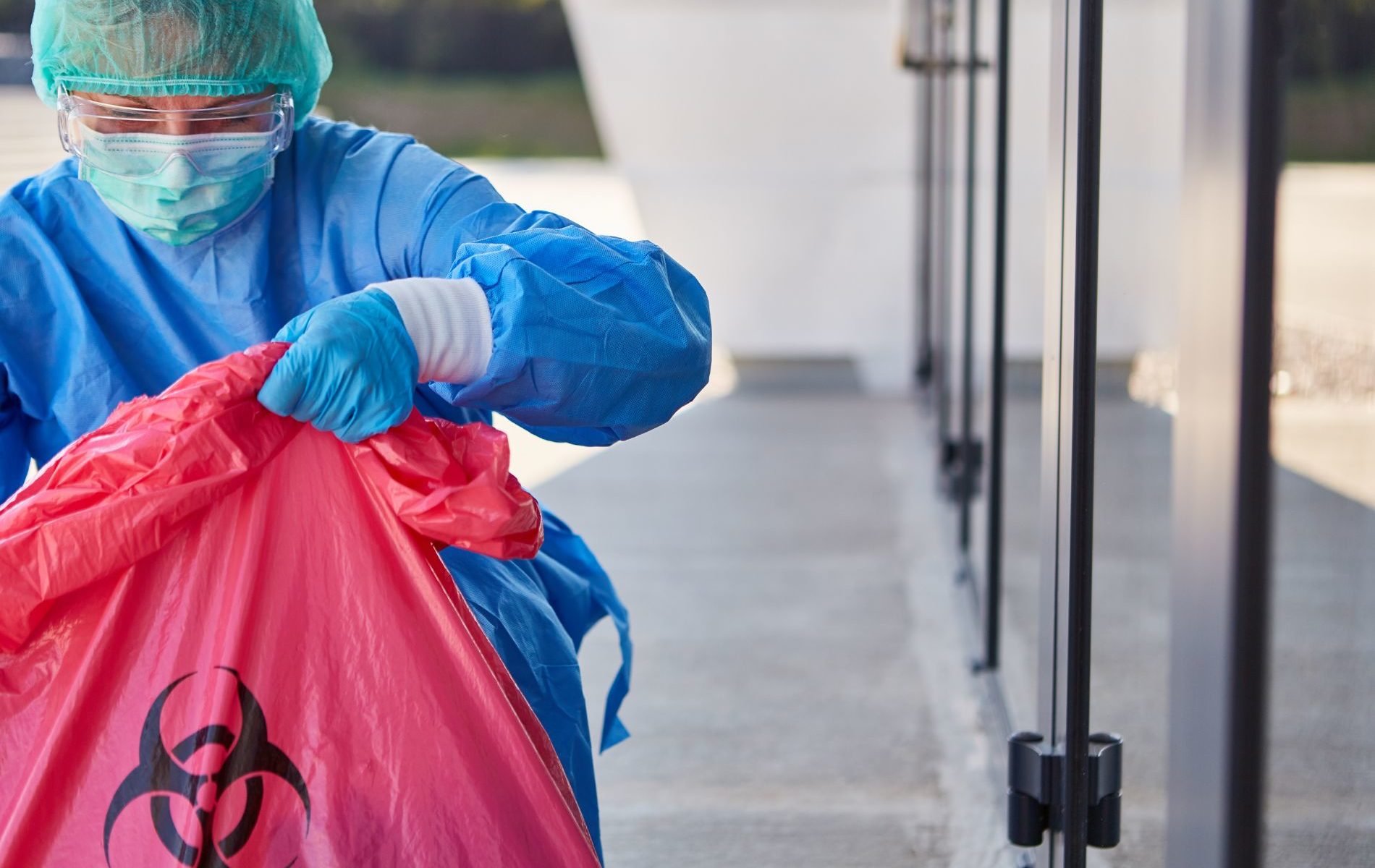A Biased View of Reclaim Waste
Table of ContentsThe smart Trick of Reclaim Waste That Nobody is Talking AboutThe Best Guide To Reclaim WasteNot known Facts About Reclaim Waste9 Simple Techniques For Reclaim WasteExcitement About Reclaim Waste
Check out the kinds, events, and forms of liquid waste. Domestic sewer waste refers to the waste and products from a residential sewage-disposal tank. This type of waste is developed by people in homes, colleges, and other structures. This only consists of septic containers that have a drainpipe field. The appropriate management and disposal of residential sewer waste need liquid waste to be transferred to a sewer treatment plant where the appropriate techniques and tools are used to detoxify and throw away waste.
Commercial waste typically consists of potential dangers, such as flammable products or a mixture of liquid and solid waste items, and calls for a more sophisticated and comprehensive disposal process. The disposal of commercial waste usually involves the filtering of waste prior to transport to ensure risk-free and proper disposal. Industrial waste is produced from results and runoff of industrial procedures and manufacturing.
This type of waste can not make use of the same sewage administration transport or processes as septic or industrial liquids. The hazardous waste administration procedure requires the assessment and screening of fluid waste prior to it undergoes the disposal process (liquid waste removal). Overflow waste is the fluid waste that comes from overflow and excess stormwater in highly inhabited locations or cities
Overflow waste can create contamination and flooding if not managed properly. Discover more regarding drain cleaning and waste administration. Making sure correct waste administration can stop calamities and lower ecological harm. Both individuals in domestic settings and specialists in business or manufacturing markets can benefit from comprehending the processes and regulations of fluid waste monitoring.
3 Simple Techniques For Reclaim Waste
Get in touch with PROS Providers today to learn more about our waste management and disposal services and the appropriate ways to take care of the liquid waste you produce.
(https://linktr.ee/leonaube33101)Do you recognize what occurs to your water when you draw the plug, flush the bathroom or drain pipes the washing device? No? Well, it deserves knowing. This supposed 'wastewater' is not only an important source however, after treatment, will be launched to our land, waterways or the sea. Used water from toilets, showers, bathrooms, cooking area sinks, washings and industrial procedures is understood as wastewater.

water used to cool machinery or clean plant and equipment). Stormwater, a type of wastewater, is runoff that moves from agricultural and city areas such as roofing systems, parks, gardens, roads, courses and seamless gutters into stormwater drains pipes, after rain. Stormwater streams neglected directly to regional creeks or rivers, ultimately getting to the sea.
Reclaim Waste Can Be Fun For Anyone
In Queensland, many wastewater is treated at sewage treatment plants. Wastewater is carried from residential or industrial websites via a system of sewage systems and pump stations, recognized as sewage reticulation, to a sewer therapy plant. City governments construct, preserve and run most sewer therapy plants. Operators are certified under the Environmental Defense Act 1994 to release treated wastewater at an appropriate ecological requirement into waterways.
The Department of Natural Resources suggests city governments about handling, operating and preserving sewage systems and therapy plants. In unsewered locations, city governments may need householders to mount private or house sewage therapy systems to deal with domestic wastewater from toilets, kitchens, shower rooms and washings. The Department of Natural Resources authorises using home systems when they are shown to be reliable.
In some new neighborhoods, therapy of some stormwater to get rid of litter, sand and crushed rock has actually started making use of gross contaminant catches. Wastewater treatment happens in four stages: Removes solid issue.
Wastewater then moves into big containers where solids work out and are removed as sludge. Grease and residue are skimmed from the surface area. Utilizes little living organisms called go to my blog micro-organisms to damage down and get rid of staying liquified wastes and great bits. Micro-organisms and wastes are incorporated in the sludge. Gets rid of nitrogen and phosphorus nutrients that might create algal flowers in our rivers and endanger marine life.
Reclaim Waste - The Facts
Nutrient removal is not offered at all sewage treatment plants because it requires expensive specialised devices. Clear fluid effluent created after treatment might still have disease-causing micro-organisms - liquid waste removal.

A lot of wastewater flows right into the sewage system. Under the Act, neighborhood governments carry out approvals and licences for eco relevant tasks (Ages) involving wastewater launches that could have a regional impact.
How Reclaim Waste can Save You Time, Stress, and Money.
Otherwise, examples are taken for lab evaluation. Typically many tests are needed to establish the degrees of each of the different pollutants such as oils, heavy steels and chemicals in water. Monitoring offers accurate information regarding water high quality and can verify that licence conditions are being satisfied. The info gotten through tracking offers the basis for making water high quality decisions.